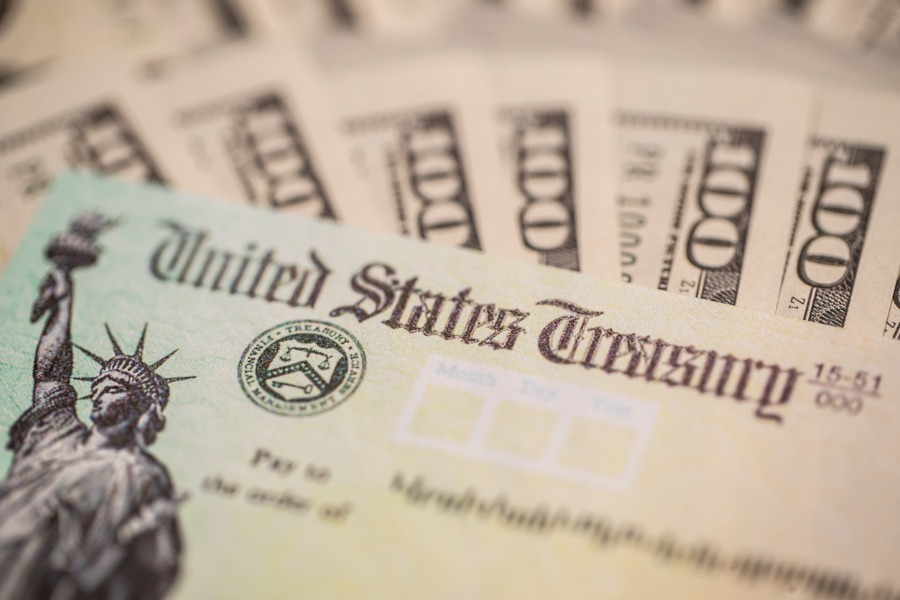

US bonds rallied sharply as signs of a slowing economy and a recent stock-market rout fueled calls for quicker interest-rate cuts from the Federal Reserve.
Shorter-dated securities led gains, with the two-year yield falling as much as nine basis points to 4.34%, the lowest since early February. The moves spread to European markets, boosting bunds and gilts.
The case for more aggressive easing is mounting as data shows the US economy is finally cooling. Weakness in stocks is adding to the souring sentiment, as big tech names that have fueled the S&P 500 Index for much of 2024 start to splutter. Attention now turns to US GDP and initial jobless claims data due later Thursday for further evidence of the economy’s health.
“We continue to view the environment as prone to more risk-off, higher volatility and lower market rates,” ING strategists including Padhraic Garvey wrote in a note.
Money markets are amping up wagers on the extent of easing by the Federal Reserve. While a move is still seen as highly unlikely this month, traders are pricing about 30 basis points of easing by September, suggesting about a 20% chance of a supersized cut. Nearly 70 basis points of cuts are seen through 2024, five basis points more than on Wednesday.
In a Bloomberg Opinion column Wednesday, former New York Fed President William Dudley said policymakers should reduce rates at the July gathering.
The move in US Treasuries narrowed the difference between two and 10-year yields, a closely-watched part of the yield curve, to just 12 basis points. The US bond curve has been inverted for years as the Fed keeps monetary conditions tight, with short-term yields rising above long-term ones.
Thursday also brought further evidence that Europe’s recovery is struggling.
In Germany, the region’s biggest economy, the business outlook unexpectedly fell just a day after data showed an unexpected plunge of the S&P Global Purchasing Managers’ Index. French business confidence posted a similar slump, reaching levels not seen since the Covid pandemic as companies reckoned with the turbulence of snap elections that plunged the country toward an uncertain political future.
The German two-year yield fell as much as eight basis points to 2.58%, the lowest since February. Money markets added to wagers on easing from the European Central Bank, with more than two-quarter point cuts seen by year-end.
The broader risk-off mood has also weighed on European bond spreads over recent days. The gap between French 10-year bonds and safer German peers widened to 71 basis points this week, the widest since early July. The equivalent Italian spread has widened 10 basis points since Tuesday’s close, to 138 basis points.
Political developments and geopolitical tensions mean safe assets like sovereign debt are primed to perform, said Antonio Cavarero, head of investments at Generali Asset Management.
“The view remains favorable towards government bond investments, particularly in Europe, where the monetary policy path seems clearly outlined,” he said.

Relationships are key to our business but advisors are often slow to engage in specific activities designed to foster them.

Whichever path you go down, act now while you're still in control.

Pro-bitcoin professionals, however, say the cryptocurrency has ushered in change.

“LPL has evolved significantly over the last decade and still wants to scale up,” says one industry executive.

Survey findings from the Nationwide Retirement Institute offers pearls of planning wisdom from 60- to 65-year-olds, as well as insights into concerns.
Streamline your outreach with Aidentified's AI-driven solutions
This season’s market volatility: Positioning for rate relief, income growth and the AI rebound
